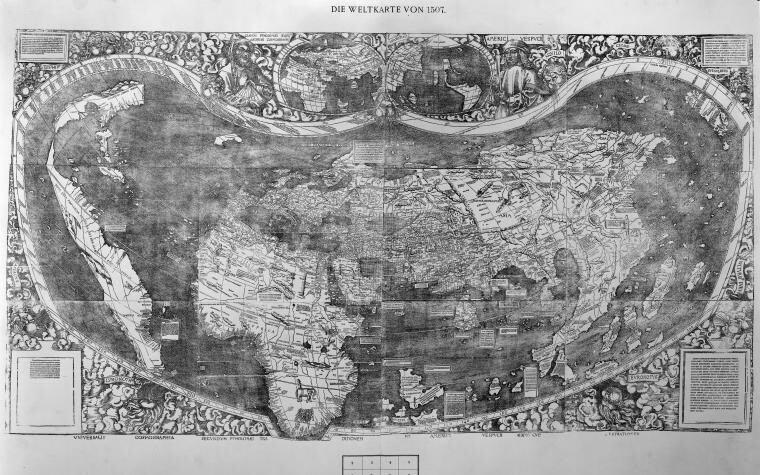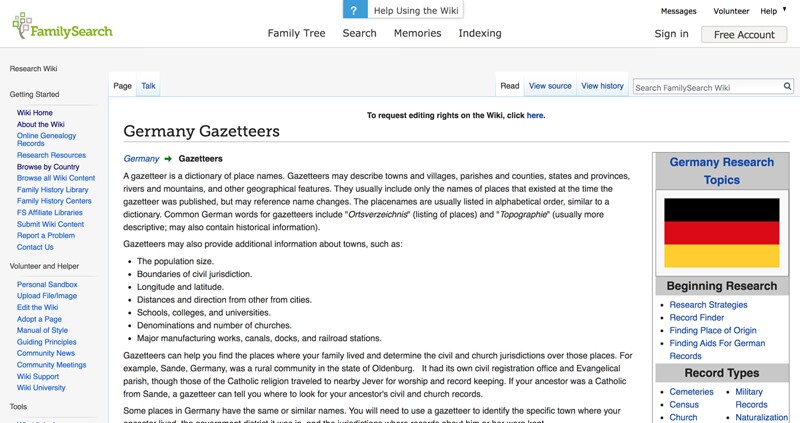Germany wasn’t always one big country the way we sometimes think of it now. Up until the late 1800s, the area we know as Germany was made up of various kingdoms and principalities, some of which had their names changed as different nations stepped in and took over.
This change over time can make for a dizzying trail when it comes to finding German ancestors. Thankfully, many of these little puzzle pieces of land and cities were recorded on early maps of Poland and Germany called gazetteers.
You can review gazetteers for help with German and Polish research, including the following:
Why Should I Use a Gazetteer?
Although you can’t really search for your ancestors on a 1900s map of Poland the same way you can search for them in a census, gazetteers are a fantastic resource to help you learn where to look for important records and other information.

Locate Records
Gazetteers can help you identify the correct spelling of locations that may be inconsistent in other records. They can also give you the jurisdictions of those locations, including the names civil registration districts or church parishes. Using this information, you can investigate which of these jurisdictions are most likely to have records about your family.

Learn More about Your Ancestors’ Lives
As a fun addition, gazetteers also give specific details about locations, such as the population and local features. They can tell you if your ancestors came from a single cluster of houses or from a town near the train tracks with a bank on the corner.
Starting Your Gazetteer Research
Anyone who has ever glanced through a German gazetteer knows that it can be intimidating. These records are known to be abbreviation-heavy and to use a much older typeface, with some letters we wouldn’t even recognize today.
Below are a couple resources that can help you feel more comfortable in navigating gazetteers.
FamilySearch Wiki
Several online sources are available to help you begin your search. Here at FamilySearch.org, we have an entire wiki page dedicated to helping you make heads and tails of Germany gazetteers, with step-by-step guides, handwriting helps, information on historical place-name changes, and a reference for common abbreviations.

Online Meyers Gazetteer
You can do a search through the online version of the Meyers Gazetteer. This search provides English translations and allows you to see the specified area on both historical maps and Google maps.
Building a family tree of your German heritage can be difficult, but Germany gazetteers can serve as a great springboard for further insight into the lives and stories of your ancestors.
The subject of this article and some of its material was taken from Kory Meyerink’s class, “German Gazetteers: Necessary Tools for Successful Research,” at the 2019 BYU Conference on Family History and Genealogy. The BYU Conference on Family History and Genealogy is held annually and offers classes for genealogists and others wanting to learn about their ancestors. Keep an eye on the BYU conference page for announcements about next year’s schedule and when registration opens.
Learn More from the 2019 BYU Genealogy Conference
At FamilySearch, we care about connecting you with your family, and we provide fun discovery experiences and family history services for free. Why? Because we cherish families and believe that connecting generations can improve our lives now and forever. We are a nonprofit organization sponsored by The Church of Jesus Christ of Latter-day Saints. To learn more about our beliefs, click here.






